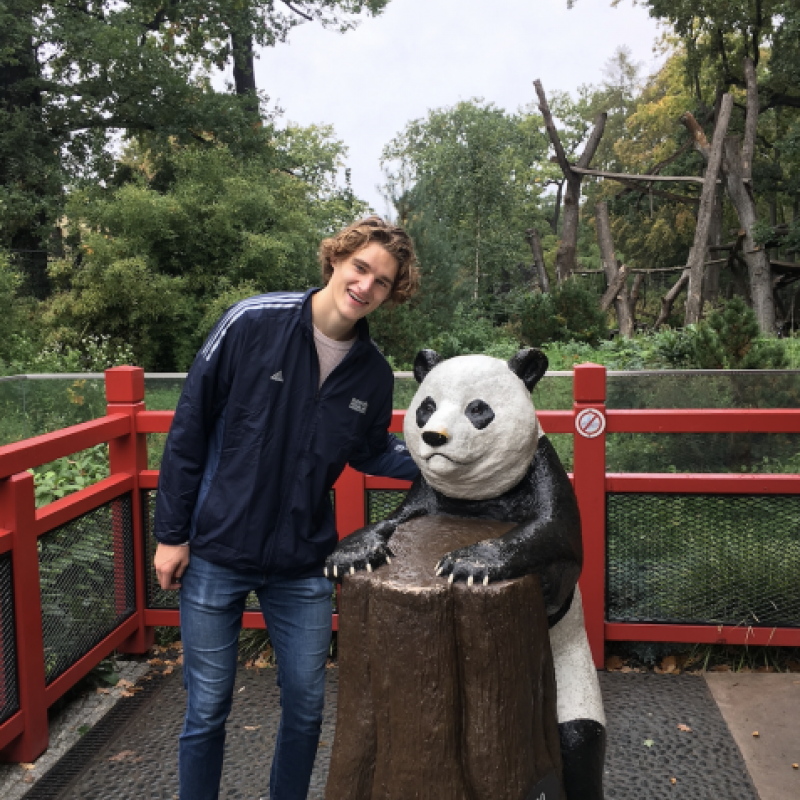I jot down a messy note about a stinging pain “between the throat and the top of the chest” then take a slow breath before transitioning into my next question. I knit my eye brows and stare intently at the soccer figurine on my desk while trying to speak clearly into my headset microphone: “we know that people who are symptomatic and test positive for COVID can be contagious up to two days before feeling sick”. I shift in my chair and rest my chin on my fist to settle myself before continuing: “so thinking back to last Friday, and up until now, can you think of anyone that was within six feet of you for a period of fifteen minutes or longer?”. There is no immediate response and I feel an expression of concern creep across my face as the noticeable silence drags on.
Moments like this are common while serving as a COVID-19 case investigator for the Allegheny County Health Department because the main objective of our call is to obtain the contact information of individuals who may have been exposed to COVID-19. After an investigation we pass the names and phone numbers of exposed individuals to the contact tracing team so they can ask them to quarantine. As an investigator I have asked bridesmaids for information about their wedding party, had grandparents give me the phones numbers of their grandchildren and told college students they can’t go home for Thanksgiving. These conversations are difficult for me, and I can’t imagine how hard they are for the person on the other end of the line. It would be strange enough to ask a close friend for the names and phone numbers of everyone they interacted with last week, but it becomes even more uncomfortable when talking to a stranger, from a phone number with no caller ID, in the context of a global pandemic where some people are tired of COVID precautions, and when no one wants to be the reason their friends have to quarantine for two weeks. There is nothing we can do as investigators if a case does not share information about where they’ve been, who they’ve socialized with or even when they started feeling sick because there are no laws forcing normal citizens to disclose protected health information to a public health agency. As U.S. citizens, we are not forced to divulge personal information to the government because we believe that privacy is a universal human right and no circumstance, not even a pandemic, can infringe on our right to privacy. However, the act of case investigation is itself a probe into the limits of one’s privacy and a practice where investigators indirectly asks cases to relinquish their personal privacy, and that of their friends and family, for the benefit of their community. The moment we ask cases to share information about their close contacts, we are putting a massive burden them to choose between the privacy of their friends or the health of their community.
An examination of the ethics behind contact tracing unearths a much larger discussion about personal autonomy versus public good, and the COVID-19 pandemic has forced us to grapple with this difficult dichotomy. Case investigation would be easier for everyone involved if there was private and secure method of gathering information about close contacts that didn’t involve calling cases for information about their friends and family. Many state governments, like that of PA, have tried to launch COVID tracking apps, but theses apps are very flawed in practice because they require all citizens to have a Bluetooth enabled smartphone. Current technology cannot replace contact tracing, so we will have to rely on good will and trust between citizens and their health departments to stop the spread of this horrible virus. I have found that speaking to patients with respect, compassion and empathy leads to the best outcomes because patients are far more likely to cooperate if there is some rapport between the investigator and the case. I also explain the utility of contact tracing to cases because I noticed that patients are more willing to provide information if they know that it will help protect their community. A widely available and effective COVID-19 vaccine is needed as soon as possible, but until then, there is no panacea that will solve this global health crisis. For now, we must rely on compassion and mutual respect to pull us through.

